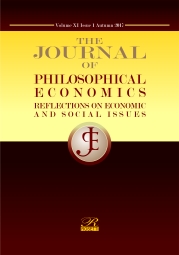The economic consequences of homo economicus: neoclassical economic theory and the fallacy of market optimality
The economic consequences of homo economicus: neoclassical economic theory and the fallacy of market optimality
Author(s): David Calnitsky, Dupuy-Spencer AsherSubject(s): Philosophy, Social Sciences, Economy, Special Branches of Philosophy, Sociology, Philosophy of Science, Social Theory, Socio-Economic Research
Published by: Editura Rosetti International
Keywords: neoclassical economics; rationality; philosophy of social science;
Summary/Abstract: This essay presents a critique of the standard ascension from the rational agent to the optimal market in economic theory. Critiques of homo economicus are found unsatisfactory on grounds that its employment allows for the prediction of essential features of actual markets. Using this same criterion we introduce Gary Becker’s essay, ‘Irrational Behavior and Economic Theory,’ which demonstrated that the same features of markets could be derived from non-rational behaviour. Thus, non-rationality is equally predictive but is less restrictive than rationality. Once the assumption of rationality is relaxed, the concept of market optimality (though not market order) must also be sacrificed.
Journal: Journal of Philosophical Economics
- Issue Year: VI/2013
- Issue No: 2
- Page Range: 2-26
- Page Count: 25
- Language: English

